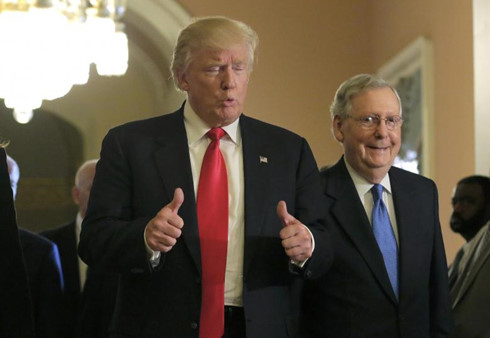Trump could easily erase much of Obama's foreign policy legacy
Due to take office on Jan. 20, Trump, the winner in November 8's election, campaigned at times to dismantle Obama's nuclear deal with Iran and to reimpose sanctions Obama eased on Cuba. Trump also disagreed with foreign policy decisions that included the way Obama has deployed troops abroad to combat Islamist militant groups.
 |
| US President-elect Donald Trump gives a thumbs up sign as he walks with Senate Majority Leader Mitch McConnell on Capital Hill in Washington, US., November 10, 2016. REUTERS/Joshua Roberts |
In his most notable foreign policy achievements, Obama, a Democrat, used executive authorities that offered a convenient legal path around a Republican-controlled Congress committed to blocking his agenda.
The U.S. Constitution gives a president broad executive powers to enact foreign policy. Both Republican and Democratic presidents have sought to exercise those powers by issuing executive orders, presidential memoranda and what are called findings.
"He (Obama) relied on executive authority to build a foreign policy legacy," said Thomas Wright, director of the Project on International Order and Strategy at the Brookings Institution.
"That is all vulnerable to countervailing executive authority by a Trump administration," Wright said.
Obama had hoped to pass his legacy on to Democrat Hillary Clinton, his former secretary of state, but she lost the presidential election to Trump, a Republican businessman who has never held public office or served in the military.

